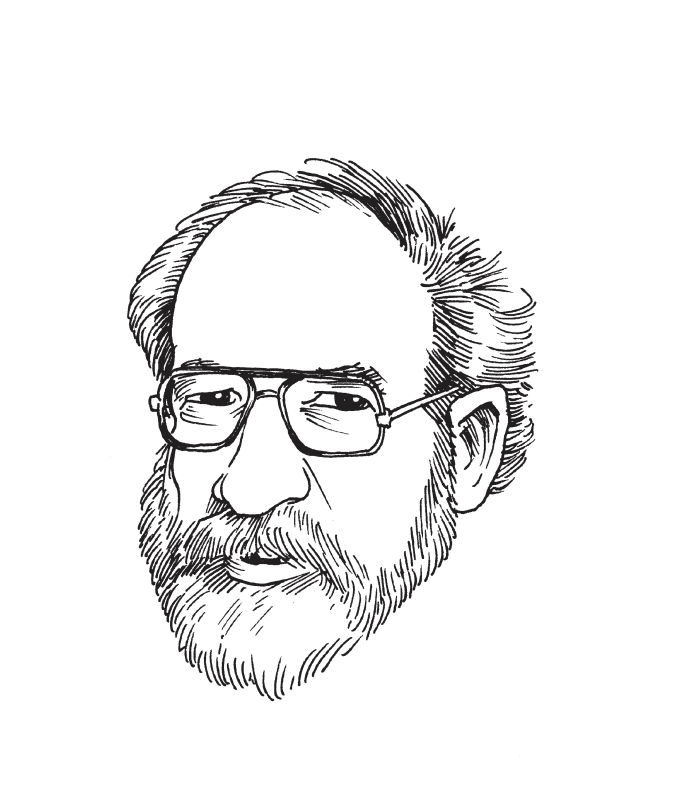First, to set the record straight: despite accusations to the contrary, Daniel Dennett does not believe that religious people should be put in animal cages. He also doesn’t want to tell your children that Santa Claus is a lie. And it’s probably okay if we keep “In God We Trust” on our coins. He’s just willing to ask in public what a lot of other people have wondered in private: How has religious rhetoric come to dominate our public sphere?
Dennett is the author of several books, including Darwin’s Dangerous Idea and Freedom Evolves, and is the Director of the Center for Cognitive Studies at Tufts University. He takes big ideas and weaves them together into enormous ones. Evolutionary theory, consciousness, religion, artificial intelligence, free will, the future of human morality—each of these subjects and more have been subjected to Dennett’s scrutiny. He traces a path through them all, creating a unified philosophy that is both steeped in science and persistently human. His rhetoric and analysis are rigorous but always engaging, and his ideas are firmly grounded in wildebeests, shopping malls, and the NBA.
The following conversation was conducted over the phone, from Boston to Berkeley, in the last fleeting moments before Dennett’s dinner called.
—Eli Horowitz
THE BELIEVER: A few months back, you wrote an op-ed piece in the New York Times urging atheists and agnostics to come out of the closet and openly proclaim their beliefs, in order to create a more balanced communication between politicians and the public. Do you think religion plays an important role in the current government? On one hand we see, for example, what was happening in Alabama with the Ten Commandments in the courthouse. I have this sticker I got in the mail, from something called the Presidential Prayer Team—
DD: [Laughs]
BLVR: And it’s got this picture of George W. Bush standing in front of the flag with his head bowed in prayer and to either side are these ghostly figures of Abraham Lincoln and George Washington…
DD: Yeah?
BLVR: … with their hands on his shoulders.
DD: Wow.
BLVR: It’s pretty amazing. It’s not a governmental organization. I think it’s mostly set up to sell these commemorative coins.
DD: Goodness gracious. The Presidential Prayer Team…
BLVR: But then on the other hand, as you’ve observed, even though Congress and the whole government has some Christian trappings, it generally operates on a secular-humanist basis. How significant is the actual role of religion in the government now?
DD: I think it’s significant as a distorter. I think that yes, by and large, secular thinking actually figures out what policies we’re going to follow. I...
You have reached your article limit
Sign up for a digital subscription and continue reading all new issues, plus our entire archives, for just $1.50/month.
Already a subscriber? Sign in





